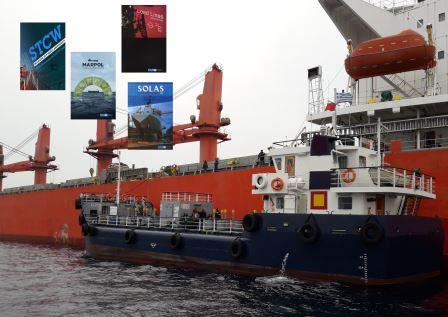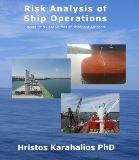What is Port State Control ?
Port State Control Origin
The poor financial position or unwillingness of some states to enforce international laws to their fleets led coastal states to enhance their own inspections on foreign ships that call on their ports or territorial waters. This process is consistent with IMO and UNCLOS standards. On its origin, the authority carrying out on-board inspections for customs and immigration purposes was the Port State Control (PSC). As specified in IMO conventions and Codes, the PSC of each state is the authority accountable to inspect each foreign ship for its compliance with IMO standards. At this point, it should be clarified that PSC should not demand from a ship to comply with regulations not ratified by its flag state. On the other hand, it should request from foreign ships compliance with its national laws. This situation is in favour of IMO standards because if some coastal states with a significant position in global trade such as USA, Australia and EU have ratified a maritime regulation, then this is compulsory for foreign ships.

Port State Control Strengths
A typical PSC inspection is similar to the one of a flag state. However, it may be carried out nearly at every foreign port that a ship arrives. With this tactic, there is not any favourable treatment on any foreign ship since any detention is not affecting the PSC state. The findings from a PSC officer upon his/her judgement will be given to ship’s master for corrective actions. The deadline of any action completion may be in few dates or immediate. Additional the organisation that has surveyed and issued a certificate for the punished ship is notified with details of the failure found.
The main weakness with PSC inspections was that a ship’s master may neglect any deficiencies unless the ship was scheduled to visit soon the same country. An innovative plan that was carried out by the EU was to create a network of information exchange of PSC results in the EU region. This arrangement is identified as the Paris Memorandum of Understanding (Paris MOU). Its success generated several new MOUs for observing ship standards. The Paris MOU moved one step further to make its PSC inspection more respectful by ship managers and their crewmembers. Therefore, any ship is banned after some detentions depending on their repetition and rating of its flag state.
Port State Control Failures
Overall, the PSC inspections are expected to raise ships standards as per IMO legislation. However, some limitations have been brought up. The first one is about the quality assurance in states that there is a lack of knowledge or unwillingness for change. The cost of settling a powerful PSC organization may not be affordable to some states. For example, the IMO has issued a resolution referring to the minimum qualifications of PSC officers. However, the training that a PSC officer will obtain depends on its cost. Dealing with lack of knowledge of some states, it has led the IMO to create a technical cooperation committee. Nevertheless, if a PSC officer has a very low wage, may be a reason for corruption.
The results of PSC inspections are circulated within MOUs. The creation of a Target Factor System identifies ships with low-performance scores resulting from inspections records, flag, age, and type. Therefore, these ships are prioritised for inspections. This target factor system does not unquestionably mean that a ship with a great score will not be substandard. Quality of a ship could follow from its administration or its crew. A common misperception is that a new ship will not be rigorously or frequently inspected. Another negative aspect is that these results are sometimes used by private companies producing their own databases and ranking world fleet. Then these data are marketed to charterers, who may refuse commercial cooperation on ships with low performance. The disadvantage of such a process is that PSC inspections from all states are taken into the account even those that are identified for low performance of their PSC inspections. Usually, a ship-owner who suffered a PSC detention or several deficiencies because of incorrect PSC inspection is forced to provide satisfactory explanations to those private firms. Otherwise, the ship may not be employed until an independent firm conducts a vetting inspection.

